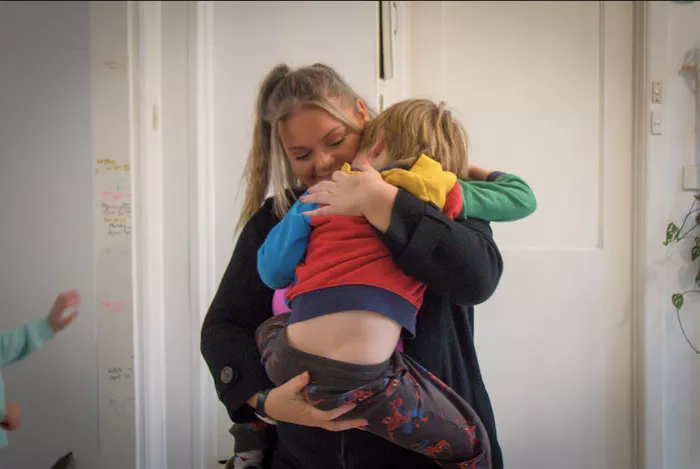Four-year-old Alfie loved attending daycare, where he thrived thanks to consistent routines and the company of friends and teachers. However, everything changed earlier this year when he was diagnosed with focal epilepsy and was subsequently removed from the early learning center he had attended for years in Melbourne’s north, run by Guardian Childcare and Education.
“It was really abrupt,” his mother, Cassandra, said. “I actually didn’t believe it. I had a really big cry.”
Alfie’s epilepsy causes daily seizures, lasting minutes, during which he usually stares blankly. He can feel the seizures coming and alerts those around him. His condition is managed with medication, and he requires someone to sit with him until the seizures pass.
Initially, Guardian Childcare seemed willing to accommodate Alfie’s needs. Cassandra and Alfie’s father, David, engaged Epilepsy Australia to provide training for the staff at $50 per person and offered to keep Alfie home while the training was conducted. However, after eight weeks, the center informed the family they could no longer provide care for Alfie.
Cassandra said the removal has caused Alfie to regress socially, the area where he needs the most support. Explaining the situation to Alfie has been challenging. “We said, ‘they’re just learning how to look after you and your seizures,'” she said. “And so, he still asks me, ‘do they know how to look after me yet? Do they know how to get me the medicine?’ It’s heartbreaking.”
Guardian, which operates more than 170 early learning centers across Australia, stated in a letter to Alfie’s family that it could not guarantee Alfie would have “constant monitoring.” The letter mentioned the center’s legal obligations to ensure the safety of all children and cited a detailed risk assessment which concluded that they could not safely accommodate Alfie’s medical needs.
The childcare sector is facing workforce challenges, with staff often stretched thin. Cassandra understands these issues but noted that a neurologist described Alfie’s seizures as “boring.” The Disability Discrimination Act requires early education services to make reasonable adjustments for children with disabilities.
Cassandra believes Alfie’s case is “textbook” discrimination. “They should not be able to get away with this,” she said.
In a statement, Guardian denied any discrimination in its enrolment practices and noted that the decision was made after significant internal review and consultation. “We have a number of children attending our centers that have diverse medical needs, including epilepsy,” the statement read.
The Victorian Department of Education was contacted for comment but has yet to respond.
Advocates say Alfie’s case is not unique. A 2022 survey by Children and Young People with Disability Australia (CYDA) revealed that one in five parents reported their child had been refused enrolment in early childhood education, and nearly a quarter said their child was only allowed to attend for limited hours.
CYDA CEO Skye Kakoschke-Moore emphasized the importance of early childhood education for children with disabilities. “Attending means children with disability are part of their community, making social connections,” she said.
In a public statement, the Minderoo Foundation’s Thrive by Five campaign highlighted systemic issues facing children with disabilities in early childhood education. Director Jay Weatherill stated that early childhood education should be treated as an essential service and right, which is currently not the case.
Alfie now attends two new early learning centers much further from home. While neither center had reservations about taking him on, he misses his old friends and teachers.
“Guardian is so close to his sister’s school that he sees it every day, so it’s constant torture for him,” Cassandra said. “Alfie said to the new kinder teachers, ‘I’m going to have a seizure, can you look after me?’ And all he wanted was a cuddle because he just doesn’t have the confidence in people anymore that they’re going to look after him.”
Cassandra is worried about Alfie’s confidence as he prepares to start primary school next year. She had hoped he would graduate from Guardian with his friends and start school happily together. Speaking out is not just for Alfie but for all children with disabilities. “It’s about fighting for what’s right,” she said.


